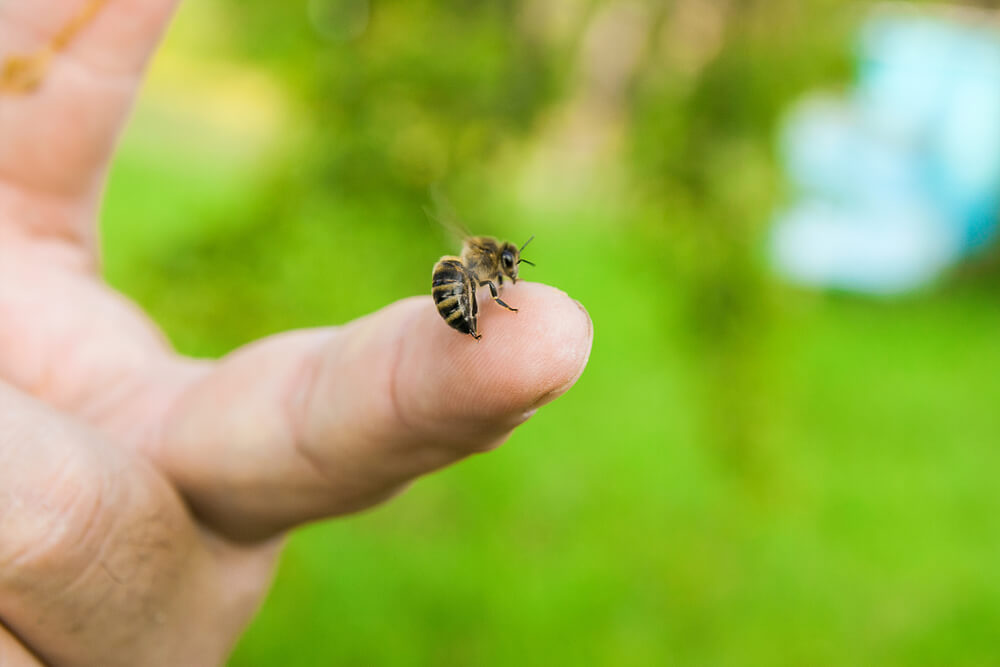How To Treat Bee Stings

Spring and summer are slowly approaching, meaning it’s an excellent time to start preparing for warmer-weather pests here in the northeast. One spring “pest” that we all know so well are bees. While bees are an essential part of our ecosystem, they can be annoying when they’re swarming food or flowers, especially when there’s the threat of them stinging you. In this article, we’ll go over some tips on how you can prevent bee stings and how you should treat them if they happen.
Tips On Preventing Bee Stings
The best way to prevent bee stings is to avoid their hives. Bees are most likely to sting you when you’re around their hives because they can become defensive if they feel you’re threatening them. If you discover a beehive on or around your home, your best course of action is to call a pest control professional who can remove the beehive without exterminating the bees, as they’re essential to plant growth and our environment as a whole. Another way to prevent bee stings is to avoid wearing sweet fragrances like perfumes and colognes because bees and wasps are attracted to these scents. If you’re planning a picnic or other outdoor activity, be sure to keep food and drinks in sealed containers so you don’t attract unwanted attention from bees and other insects. By keeping these tips in mind this spring and summer, you’ll reduce the chances of bee and wasp stings!
Tips On Treating Bee Stings
If you have the misfortune of being stung by a bee, seek medical attention immediately if you’re allergic to bees. If you’re not allergic, the first thing you should do is remove the stinger. Stingers that are not removed can cause a longer-lasting, more severe reaction. You can remove the stinger by swiping over the spot of the sting with your fingernail or credit card. Avoid using tweezers to remove a bee stinger because the pinching can cause more venom to be released into your skin. Once you’ve successfully removed the stinger from your skin, clean the affected area with soap and warm water to avoid the possibility of infection. You can then treat the pain and swelling caused by the sting with a cold compress or ice pack. If the reaction persists, you should ask your doctor about using anti-inflammatories, antihistamines, or hydrocortisone ointments to treat the sting.
Contact Absolut Pest Control!
If you have any questions about bee removal or any other pest control-related problem in northeastern Massachusetts or southern New Hampshire, don’t hesitate to contact Absolut Pest Control! We provide a wide variety of affordable pest control services to residents and businesses of the region! Give us a call today at (978) 388-4589 or fill out the contact form on our website, and we’ll get back to you as soon as possible!

Leave a Reply